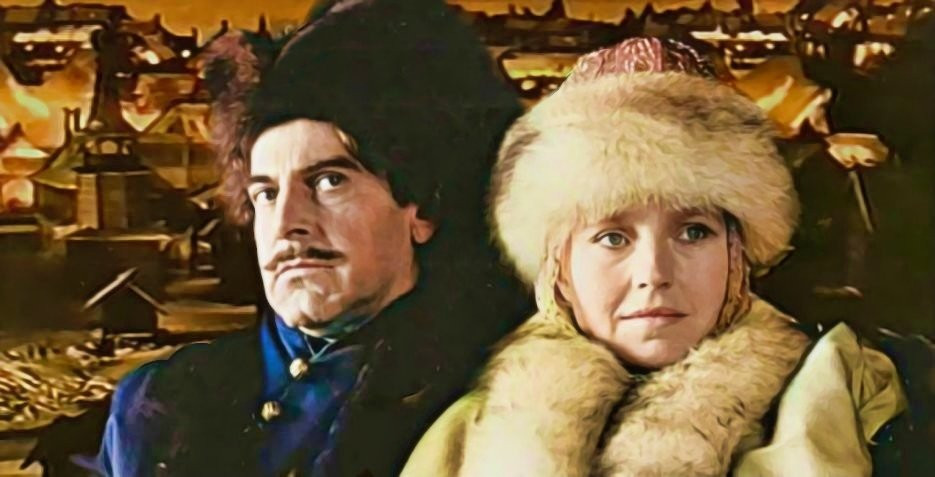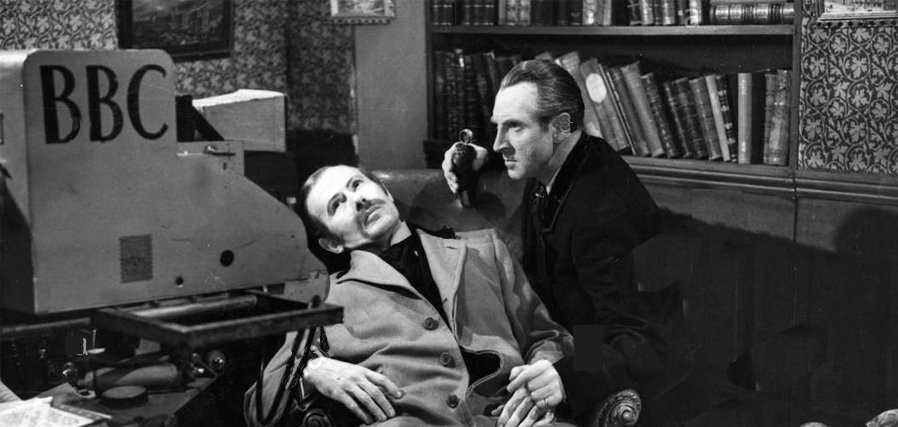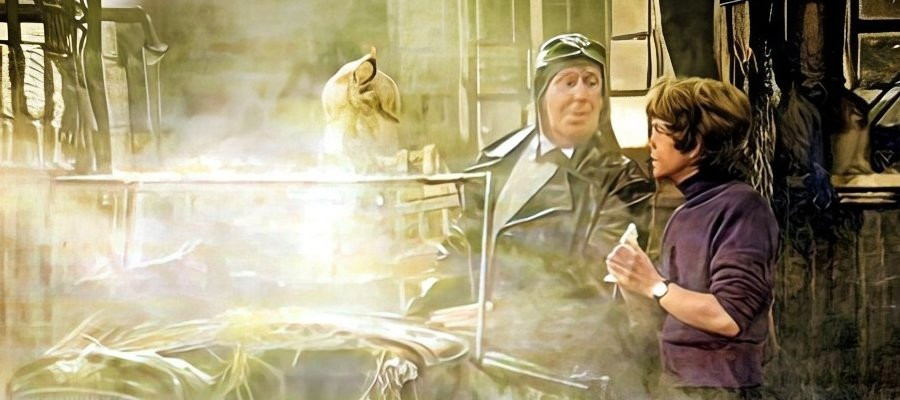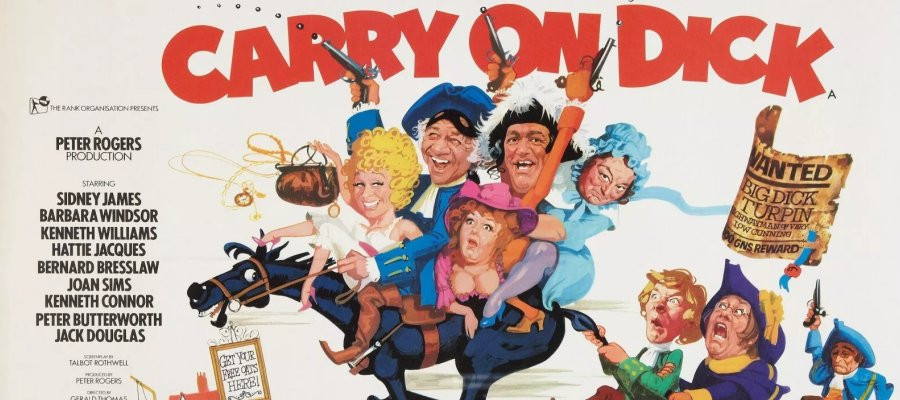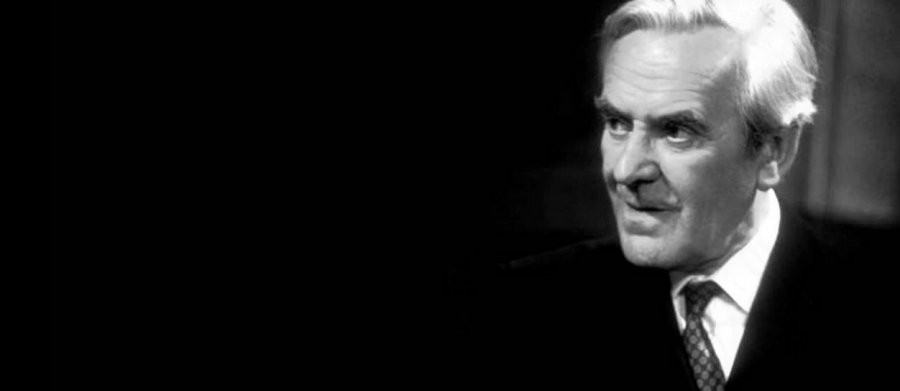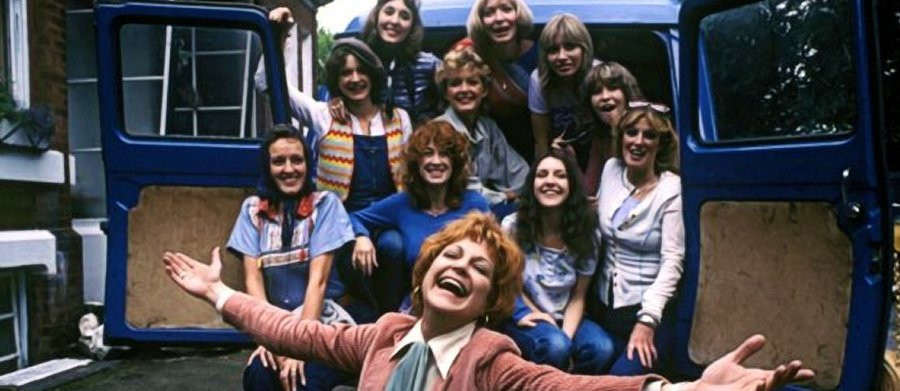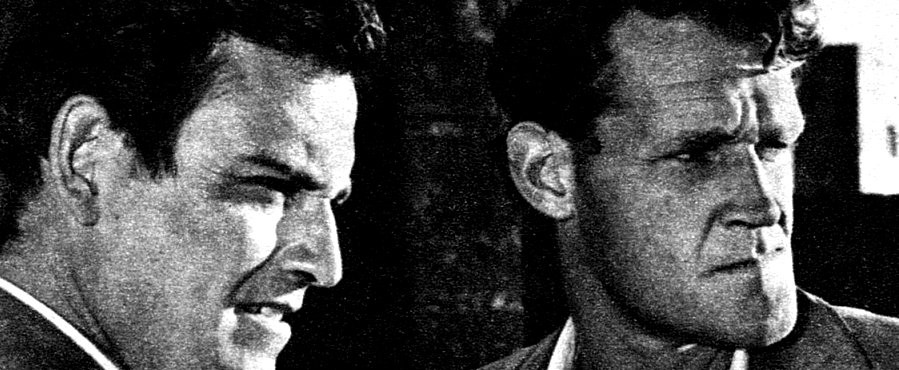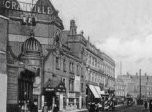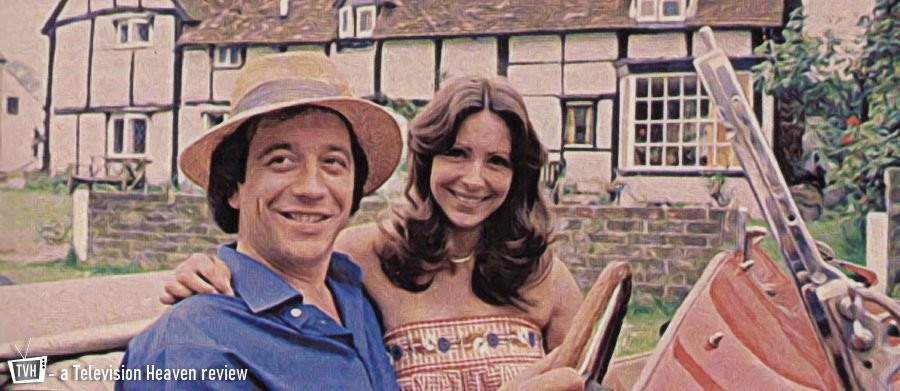
The Shillingbury Tales
1980 - United KingdomShot entirely on location in the Hertfordshire village of Aldbury, The Shillingbury Tales is a delightfully amusing story about rural village life and the local residents, a number of whom are members of the village brass band.
The series was a spin-off of a single TV film entitled The Shillingbury Blowers, written by British television and stage producer, author and composer Francis Essex (and directed by Val Guest). Essex's career spanned several decades during which he worked for several TV production companies including the BBC, ATV and Scottish Television. His scripts included The Gentle Flame (for Julie Andrews), Quincy's Quest (for Tommy Steele), and The Silent Scream, an episode in the series Hammer House of Horror. His numerous musical scores also included Luke's Kingdom, The Seas Must Live and (as Steven Francis) the theme from Follyfoot, The Lightning Tree. One of his greatest coups was in helping to bring the Muppets to British screens after their creator, Jim Henson, had failed to land a series with American producers. When ATV's chairman, Lew Grade, decided to offer Henson a deal, he sent Essex, as director of production at the company's Elstree Studios, and Dennis Basinger, controller of the studios, to New York to work out the logistics. Sitting down with Henson at his home, the pair agreed a format for The Muppet Show.
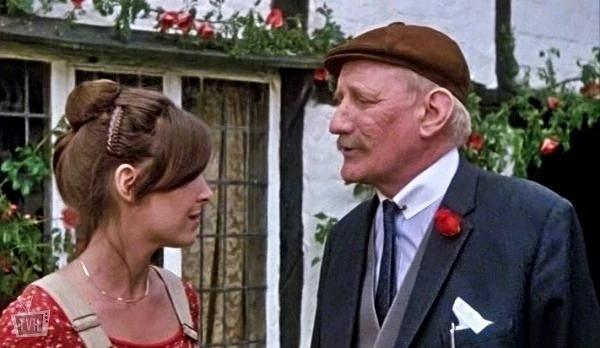
The Shillingbury Blowers starred Trevor Howard as 'Saltie' (so nicknamed because he was 'the salt of the earth'), the elderly bandleader of the local brass band which was originally formed in 1945 to commemorate the disbandment of the Shillingbury Home Guard. Unfortunately, and despite Saltie's best efforts, the good blowers of Shillingbury are not very good. In fact, they are awful and can't play a tune without adding "twiddly bits." They rehearse in a local village hall on a Sunday, which prompts the nearby residents to shut their windows in order to drown out the racket they create. Apparently, their only fan is an elderly woman in the village and she is, according to a member of the local council, "as deaf as a post."
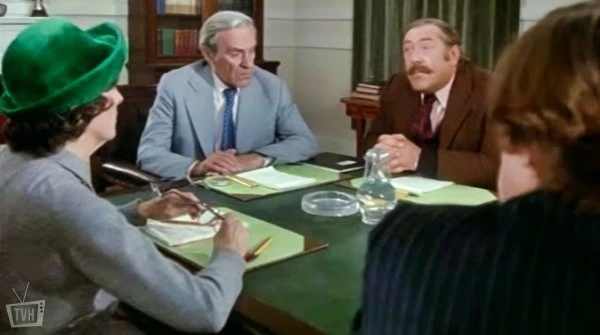
It's at a council committee meeting, where funding for the band is usually agreed, that a decision is taken that something must be done if the band are to stand a chance of qualifying for the all-counties championship. However, the meeting, chaired by John LeMesurier, soon turns into a mocking verbal assault on the band in the presence of Saltie, who promptly resigns. Now the committee need to find a new conductor. Fortunately for them the new residents of Rose Cottage might just have the answer.
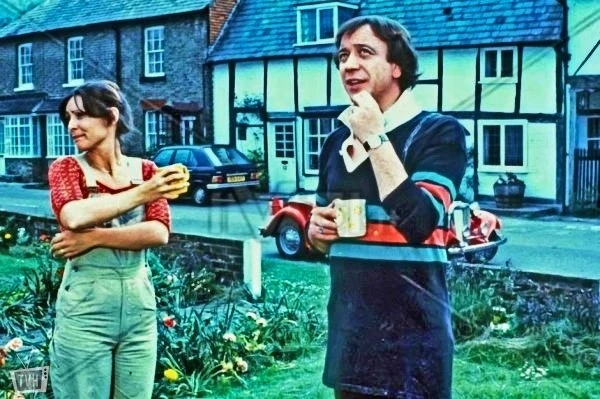
Peter and Sally Higgins (Robin Nedwell and Diane Keen) have recently moved into their idyllic half-timbered cottage in the village for a bit of peace and quiet. He is a professional musician who has graduated from university and gone on to write pop songs. He wants nothing to do with the brass band. But she thinks that taking on the responsibility will help them become respected members of the local community. Things do not go according to plan.
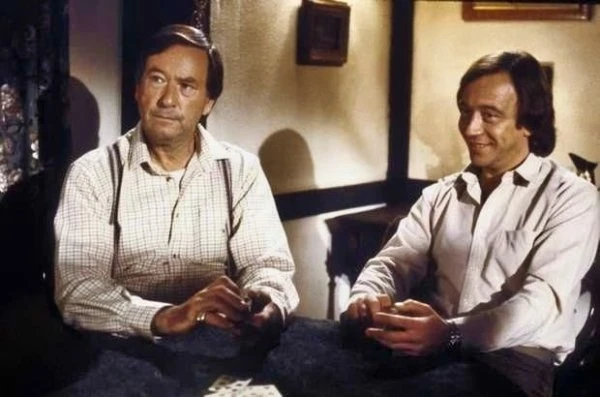
After agreeing to direct the band, Peter's first rehearsal with them ends in disaster. He tells them they are awful, and they promptly walk out on him. Jake (Jack Douglas), the lead cornet, and the one band member that all the others take advice from, decides that from now on they will 'work-to-rule' and remove all individuality. Ironically, this immediately solves the problem and the band sound pretty decent. Frustrated that their tactics have not upset Peter, they reconvene in the pub, The Oddfellows Arms, and resolve to play with further restrictions - playing staccato. This then gives the band an incredibly unique sound. And when Saltie returns as lead trumpet and plays very melodically, this only enhances their appeal further.
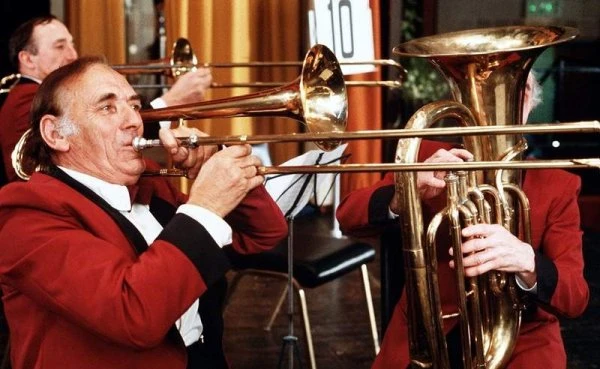
The Shillingbury Blowers debuted on ITV on Sunday 6 January 1980 and was well received enough for ATV to commission a series of six episodes. Not all the cast returned. Trevor Howard, John Le Mesurier, Patrick Newell and Sam Kydd were notable absentees, but a number of recognisable faces turned up, including Lionel Jeffries, Gwen Watford, Linda Hayden and Bernard Cribbins. Cuffy, Cribbins' character, a scruffy rather mischievous tinker who lives in a shabby caravan, was the brainchild of Bob Monkhouse, who was a close friend of Francis Essex, and gave it to him to include in the series. Although he only appeared in two episodes, it was deemed that there was more mileage to be had from the character. Shillingbury Tales ended when ATV lost its franchise licence to broadcast and its replacement, Central, declined to continue production of the series. However, in 1983, a spin-off sequel series entitled Cuffy was made and broadcast. The spin-off series didn't feature Robin Nedwell or Diane Keen.
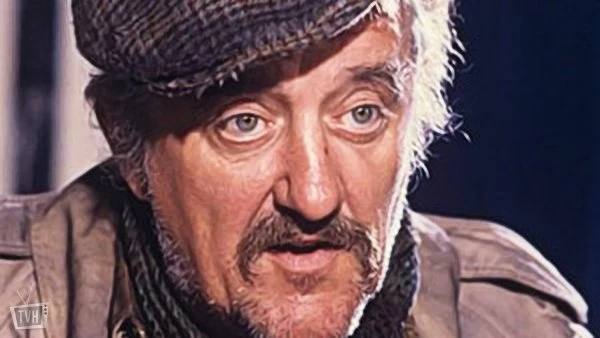
Sold internationally, The Shillingbury Tales could only have been made in the UK. Brass bands were first formed in Britain's towns and villages over 180 years ago - especially in the industrial north and Midlands. Dismissed for more than a century as "cloth-cap" music, the brass band sound fought its way to acceptance and to the surprise of everyone managed to find its way into the pop charts in 1977 when The Floral Dance by the Brighouse and Rastrick Band soared to number two in Britain and stayed there for six weeks.
Many internationally famous musicians started their careers in brass bands. Songwriter Peter Skellern began playing the trombone at the age of twelve with the Manchester Co-op Band and his hit record You're A Lady has a brass-band backing.
The series producer Greg Smith told the TV Times in 1980 that he'd had his initiation into brass bands as an 11-year-old attending a private school in Billericay, Essex. "I often used to hear Salvation Army brass bands playing at street corners - and I hated the noise they made! Then, one time I saw them close up and fell in love with a girl playing the cornet. I didn't see much of brass bands again until I became involved in this film. It was like going back to my first love."
A brass band was also the subject of Brassed Off, a 1996 British comedy-drama written and directed by Mark Herman and starring Pete Postlethwaite, Tara Fitzgerald and Ewan McGregor. The setting of the idyllic English countryside, the ambiance of fine thatched-roofed cottages, and oak-timbered pubs with all gossip and cream teas was excellently revisited in 1991 in another hit series - The Darling Buds of May.
Seen this show? How do you rate it?
Seen this show? How do you rate it?
Published on February 19th, 2021. Written by Malcolm Alexander for Television Heaven.


